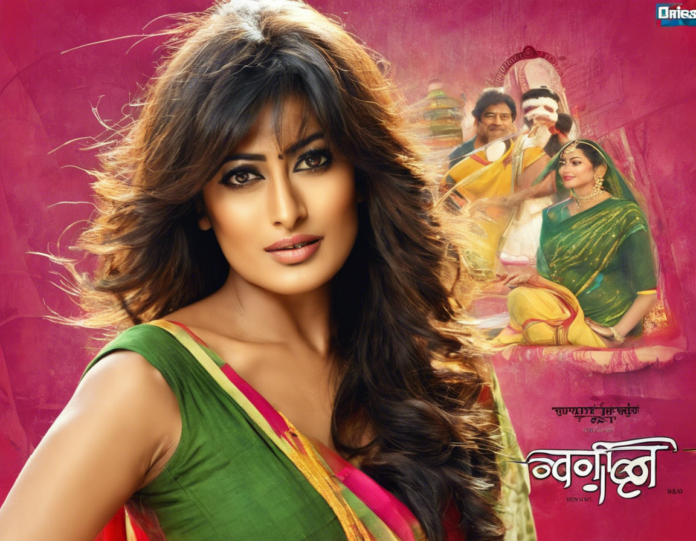In the realm of Indian cinema, there exists a gem that often goes unnoticed by mainstream audiences: “Chitrangada.” Directed by the legendary filmmaker Rituparno Ghosh, this Bengali movie is a masterpiece that delves deep into the realms of love, identity, and self-discovery. Released in 2012, “Chitrangada” is a modern adaptation of Rabindranath Tagore’s play of the same name. The film weaves a poignant narrative that challenges societal norms and celebrates the freedom to embrace one’s true self.
The Plot
At the heart of “Chitrangada” lies the story of a talented choreographer, Rudra, played by Jisshu Sengupta, who is known for his prowess in creating spectacular dance performances. Rudra’s world turns upside down when he meets Chitrangada, portrayed by Anjali Bose, a beautiful young woman who captures his heart. Chitrangada is not just any woman; she is an epitome of grace and charm, exuding a magnetic aura that mesmerizes Rudra.
As their relationship blossoms, Rudra discovers a deep secret about Chitrangada that challenges their love and forces him to confront his own understanding of gender and identity. Chitrangada reveals that she is a transgender woman, living a life of concealment and yearning to openly express her true self. Rudra’s initial shock gives way to a journey of acceptance, understanding, and unconditional love as he grapples with his own prejudices and societal norms.
Themes Explored
1. Gender Identity and Acceptance
One of the central themes of “Chitrangada” is gender identity. The film bravely tackles the complexities of being transgender in a society that often struggles to accept anything beyond the binary gender roles. Chitrangada’s journey of self-acceptance and her desire to live authentically resonate deeply with audiences, prompting reflection on the importance of embracing diversity and upholding individual freedom.
2. Love and Relationships
Love is portrayed in its purest form in “Chitrangada.” Through Rudra and Chitrangada’s evolving relationship, the film underscores the notion that love transcends societal constructs and flourishes in the presence of understanding, compassion, and acceptance. It challenges the traditional notions of love and invites viewers to contemplate the depth and breadth of human connections.
3. Artistic Expression and Creativity
As a talented choreographer, Rudra’s artistry serves as a metaphor for creative expression and individuality. Through dance sequences that mesmerize and captivate, the film celebrates the power of artistic expression in transcending boundaries and communicating emotions that words often fail to convey. Rudra’s journey of self-discovery parallels Chitrangada’s, highlighting the transformative nature of art in shaping personal narratives.
Cinematic Brilliance
Rituparno Ghosh’s directorial prowess shines through in every frame of “Chitrangada.” His sensitive portrayal of complex characters, attention to detail, and nuanced storytelling elevate the film to cinematic excellence. The visuals are stunning, capturing the essence of Kolkata’s vibrant streets, cultural nuances, and rich heritage. The music, composed by the maestro Rabindranath Tagore himself, evokes a sense of nostalgia and melancholy that underscores the emotional depth of the narrative.
Anjali Bose delivers a stellar performance as Chitrangada. Her portrayal is nuanced, poignant, and emotionally resonant, bringing to life a character who navigates the turbulent waters of identity with grace and strength. Jisshu Sengupta’s portrayal of Rudra complements Anjali’s performance, depicting a man torn between his love for Chitrangada and his own insecurities.
Impact and Legacy
Since its release, “Chitrangada” has garnered critical acclaim and accolades for its bold storytelling and sensitive treatment of LGBTQ+ themes. The film has sparked important conversations about gender identity, societal acceptance, and the power of unconditional love. By bringing the struggles of transgender individuals to the forefront, “Chitrangada” has contributed to a more inclusive narrative in Indian cinema and highlighted the need for greater representation and empathy.
Frequently Asked Questions (FAQs)
Q1: Is “Chitrangada” based on a true story?
A1: No, “Chitrangada” is not based on a true story. It is a modern adaptation of Rabindranath Tagore’s play “Chitrangada.”
Q2: What language is “Chitrangada” in?
A2: “Chitrangada” is a Bengali film, so it is primarily in the Bengali language.
Q3: Are English subtitles available for “Chitrangada“?
A3: Yes, English subtitles are available for “Chitrangada,” making it accessible to a wider audience.
Q4: Has “Chitrangada” won any awards?
A4: Yes, the film has won several awards for its direction, performances, and thematic content.
Q5: Where can I watch “Chitrangada“?
A5: “Chitrangada” is available on various streaming platforms and can also be purchased or rented on DVD.
In conclusion, “Chitrangada” stands as a poignant and powerful cinematic masterpiece that challenges societal norms, celebrates love in its purest form, and advocates for gender diversity and acceptance. Rituparno Ghosh’s visionary storytelling, coupled with stellar performances by Anjali Bose and Jisshu Sengupta, elevates the film to a realm of artistic brilliance. Through its exploration of identity, relationships, and artistic expression, “Chitrangada” leaves a lasting impact on audiences, urging us to embrace our true selves and cherish the beauty of diversity in all its forms.

